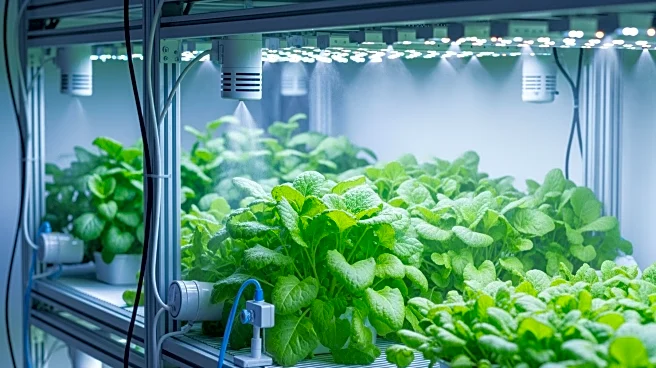What's Happening?
The COP30 conference in Belém, Brazil, faced challenges including a venue fire and debates over climate policies. Despite not attending, President Trump's stance on climate change influenced discussions.
His administration previously withdrew the U.S. from the Paris Climate Agreement, citing economic disadvantages. California Governor Gavin Newsom represented the U.S., criticizing Trump but facing challenges in promoting climate policies. The conference highlighted shifting priorities, with climate issues losing prominence among voters in industrialized nations. Investment patterns show fossil fuel spending remains high, complicating efforts to meet the Paris Agreement's goals. The final COP30 text reflected a pragmatic approach, aligning more with Trump's views than Newsom's.
Why It's Important?
The COP30 conference underscores the complexities of global climate negotiations and the influence of U.S. policies. President Trump's 'America First' approach challenges traditional climate agreements, emphasizing economic competitiveness over environmental commitments. This shift in priorities affects global investment in clean energy and fossil fuels, with implications for international climate goals. The evolving debate highlights the need for pragmatic solutions, balancing economic growth with environmental sustainability. As climate issues become less prioritized, the focus may shift towards adaptation and resilience, impacting policy decisions and funding allocations.
Beyond the Headlines
The changing dynamics at COP30 reflect broader shifts in global climate policy, where adaptation and resilience gain importance over strict emissions targets. This pragmatic approach may lead to new strategies for addressing climate change, focusing on improving lives and protecting vulnerable populations. The debate also highlights the role of influential leaders like President Trump in shaping international priorities, potentially redefining climate policies and agreements. As traditional climate goals become less attainable, the emphasis on adaptation could drive innovation in sustainable practices and technologies.









